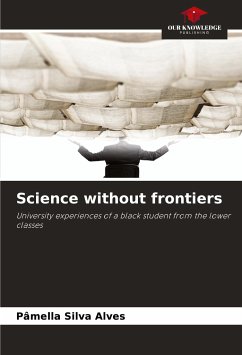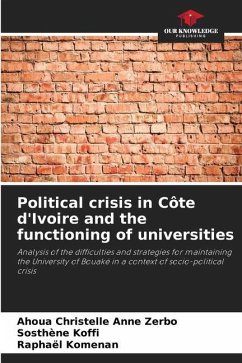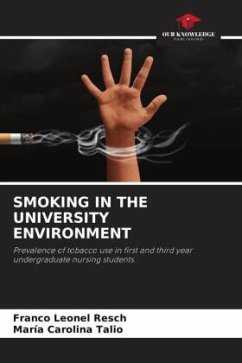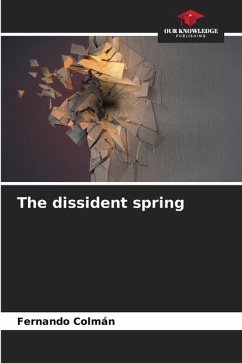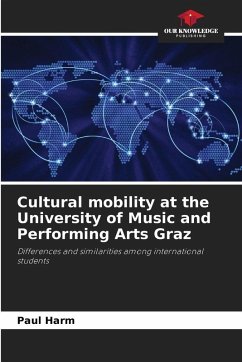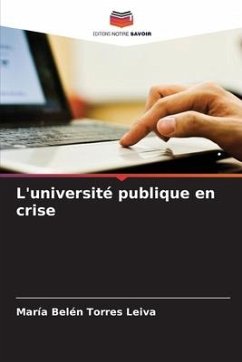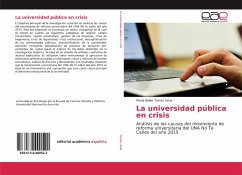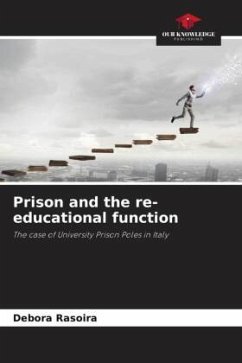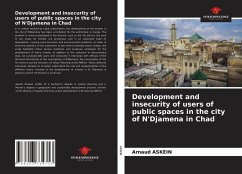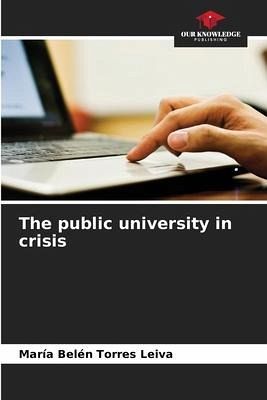
The public university in crisis
Versandkostenfrei!
Versandfertig in 6-10 Tagen
36,99 €
inkl. MwSt.

PAYBACK Punkte
18 °P sammeln!
The main objective of the research was to analyse the causes of the UNA No te calles university reform movement of 2015. For this purpose, a conceptual framework was constructed in which the following categories of analysis are taken into account: university field, university capital, management of tensions, crisis of hegemony, crisis of legitimacy, institutional crisis, decapitalisation of public universities, commercialisation of the university, inclusive exclusion, perpetuation of pre-existing exclusion processes, which guide the analysis of the data obtained in the empirical research. It i...
The main objective of the research was to analyse the causes of the UNA No te calles university reform movement of 2015. For this purpose, a conceptual framework was constructed in which the following categories of analysis are taken into account: university field, university capital, management of tensions, crisis of hegemony, crisis of legitimacy, institutional crisis, decapitalisation of public universities, commercialisation of the university, inclusive exclusion, perpetuation of pre-existing exclusion processes, which guide the analysis of the data obtained in the empirical research. It is based on a qualitative approach study with an explanatory scope. Semi-structured interviews with key informants and matrices of secondary sources, discourse analysis and documents were used as instruments. The results show that the UNA No te calles university mobilisation of 2015 was based on an anti-corruption movement whose main cause was the institutional deterioration of the university.



